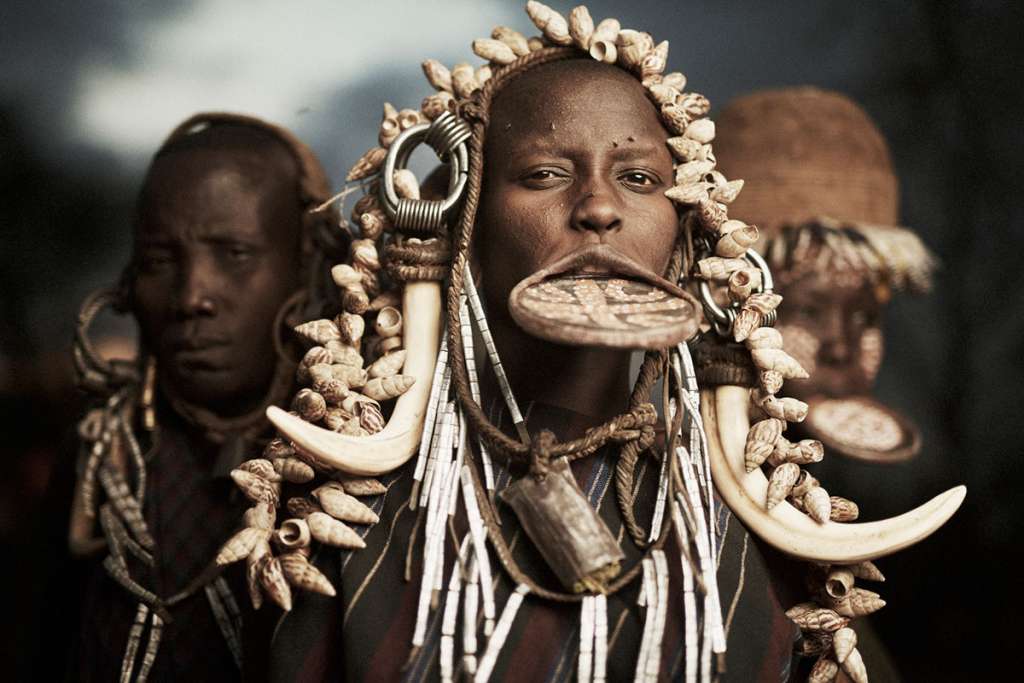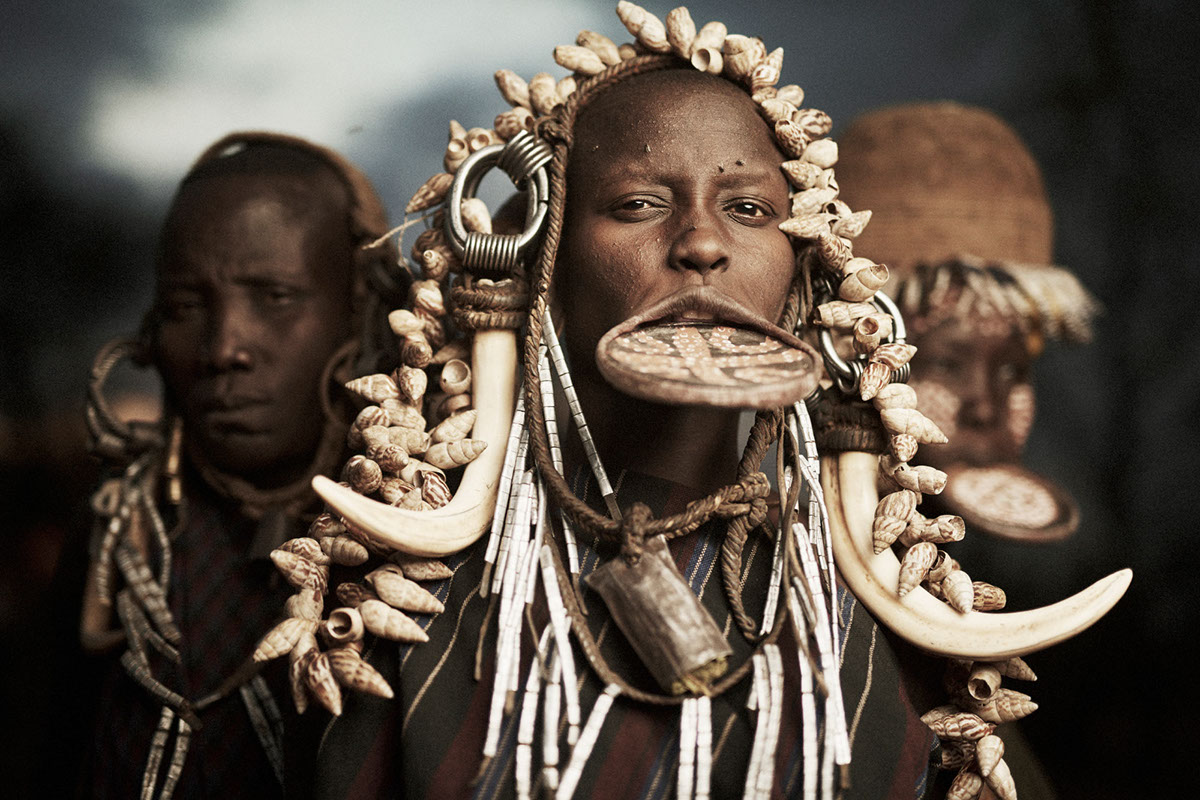
The Mursi tribe is an indigenous community living in the remote and untouched areas of the Omo Valley in southwestern Ethiopia. They are a pastoralist and agro-pastoralist society known for their unique cultural traditions and distinctive body modifications.
The Mursi people are renowned for the lip plates worn by their women, which is one of their most recognizable features. The lip plates are made of clay or wood and inserted into the lower lips, creating a distinctive and elongated appearance. This practice is considered a symbol of beauty and cultural identity within the Mursi tribe.
Traditionally, the Mursi people lead a semi-nomadic lifestyle, herding cattle and cultivating crops in the fertile lands of the Omo Valley. They have a deep connection with their natural surroundings and rely on the resources provided by the environment for their sustenance.
The Mursi tribe has a rich oral tradition, passing down their history, stories, and cultural practices through generations. They have a complex social structure, with clans and age sets playing significant roles in their community dynamics.
Visiting the Mursi tribe offers a unique opportunity to witness their way of life and immerse yourself in their vibrant culture. Travelers can engage with the Mursi people, learn about their customs, observe their traditional ceremonies, and gain a deeper understanding of their traditions and beliefs.
It’s important to approach a visit to the Mursi tribe with cultural sensitivity and respect. Tourism has had both positive and negative impacts on their community, so it’s crucial to engage in responsible and ethical tourism practices, ensuring that the Mursi people are treated with dignity and that their cultural heritage is preserved.
Exploring the Mursi tribe allows travelers to experience the rich diversity of Ethiopia’s indigenous communities and gain insights into their unique way of life. It’s an opportunity to appreciate their resilience, artistic expressions, and the challenges they face in preserving their traditions in a rapidly changing world.
